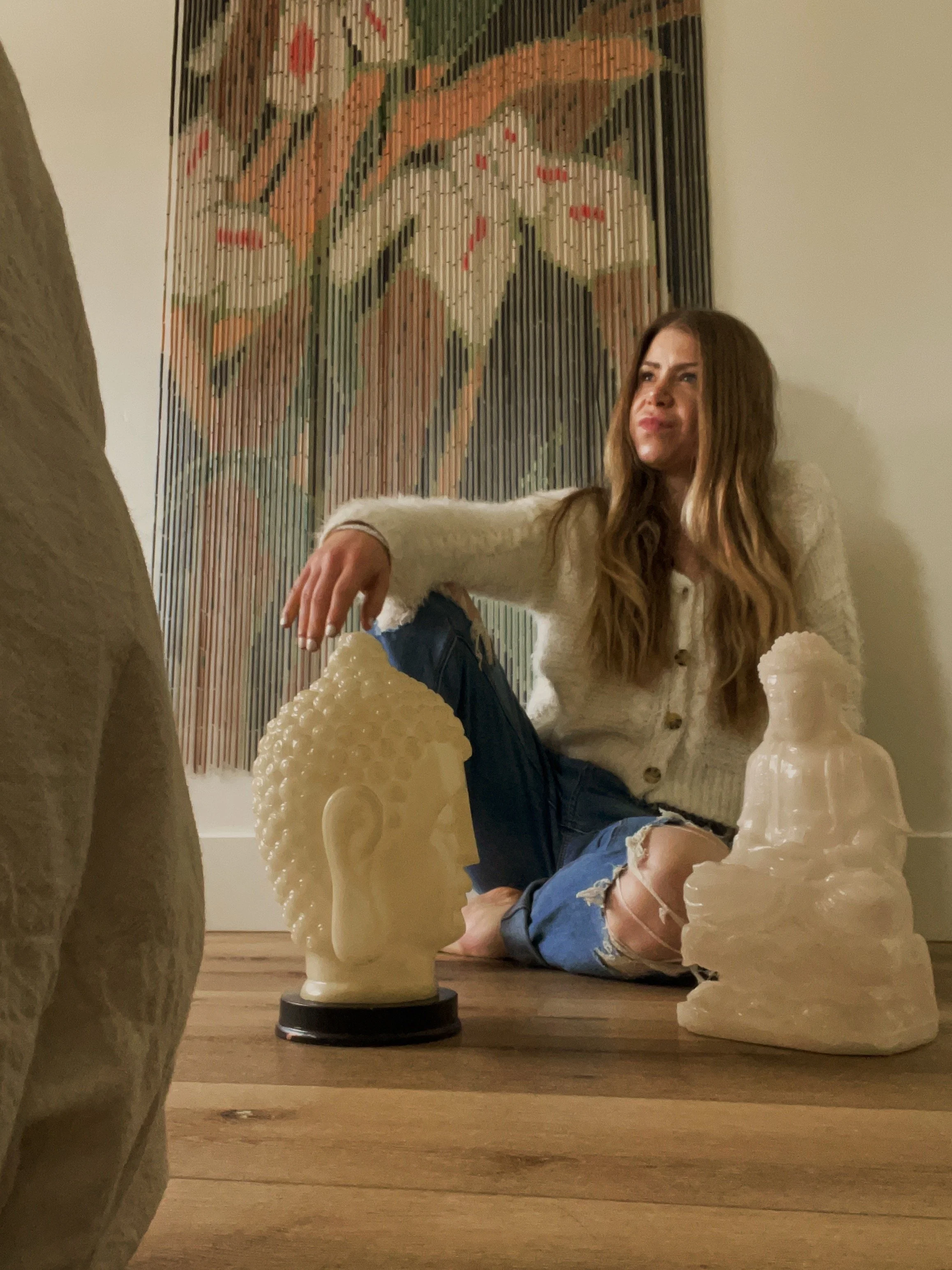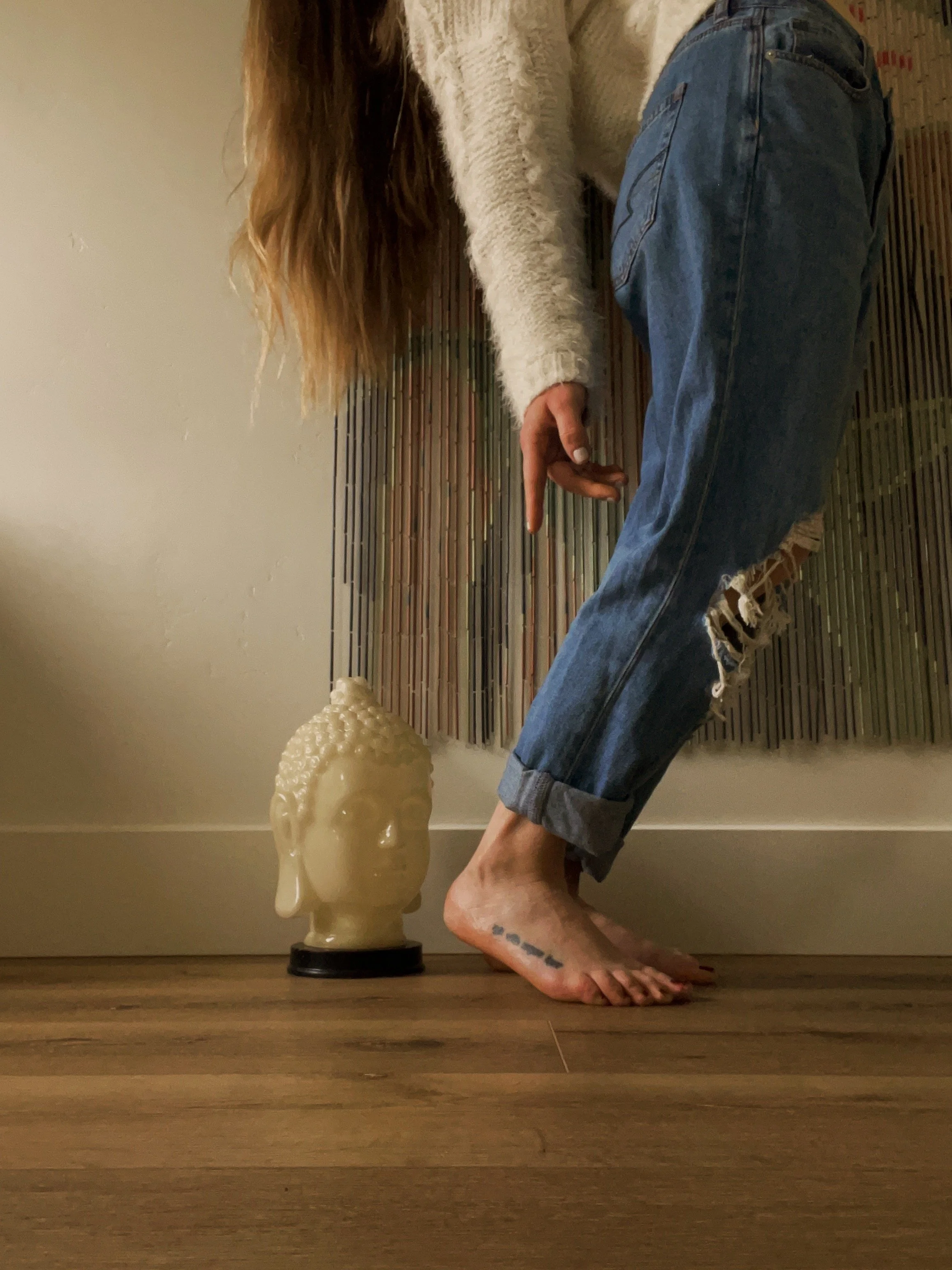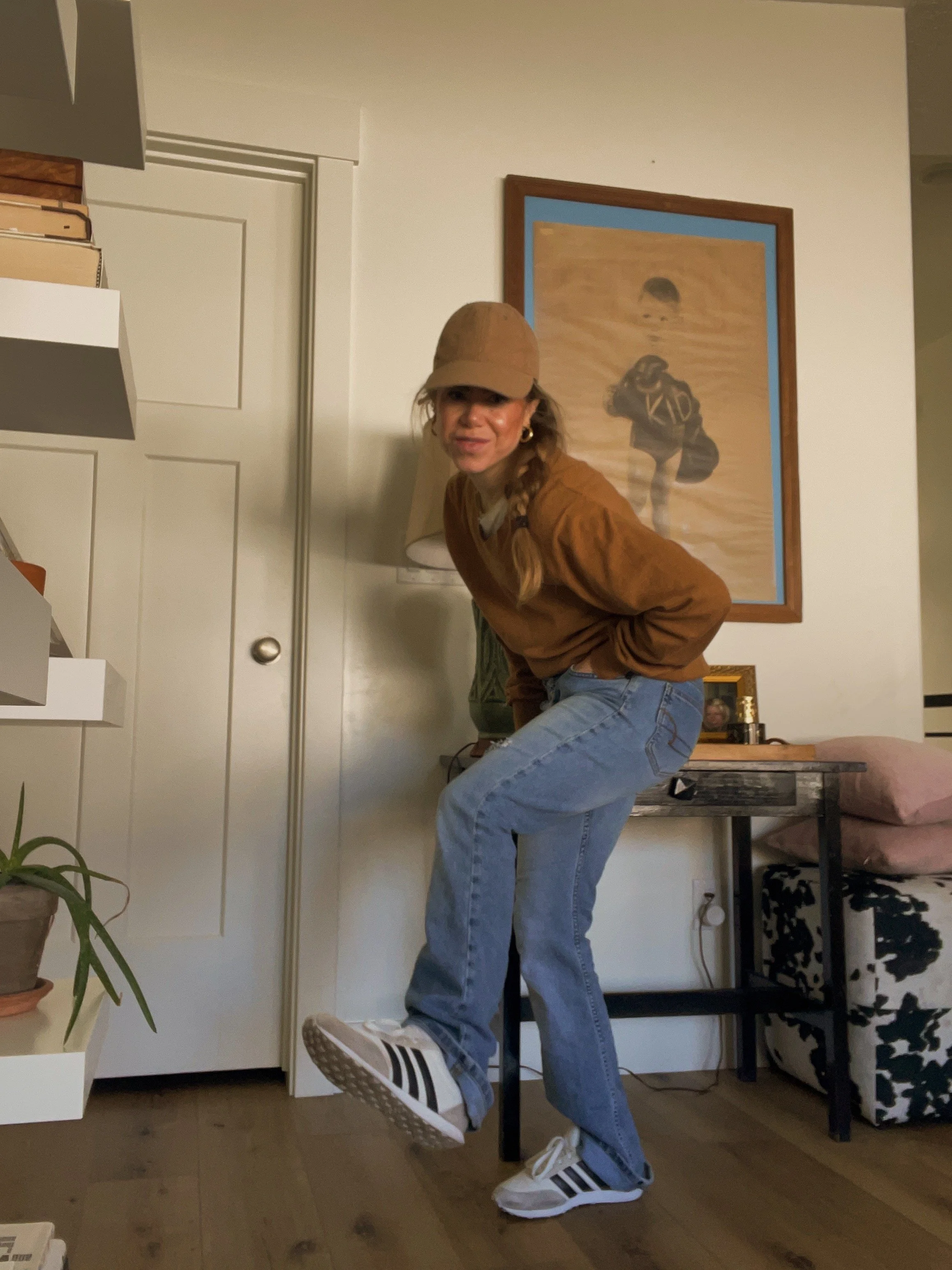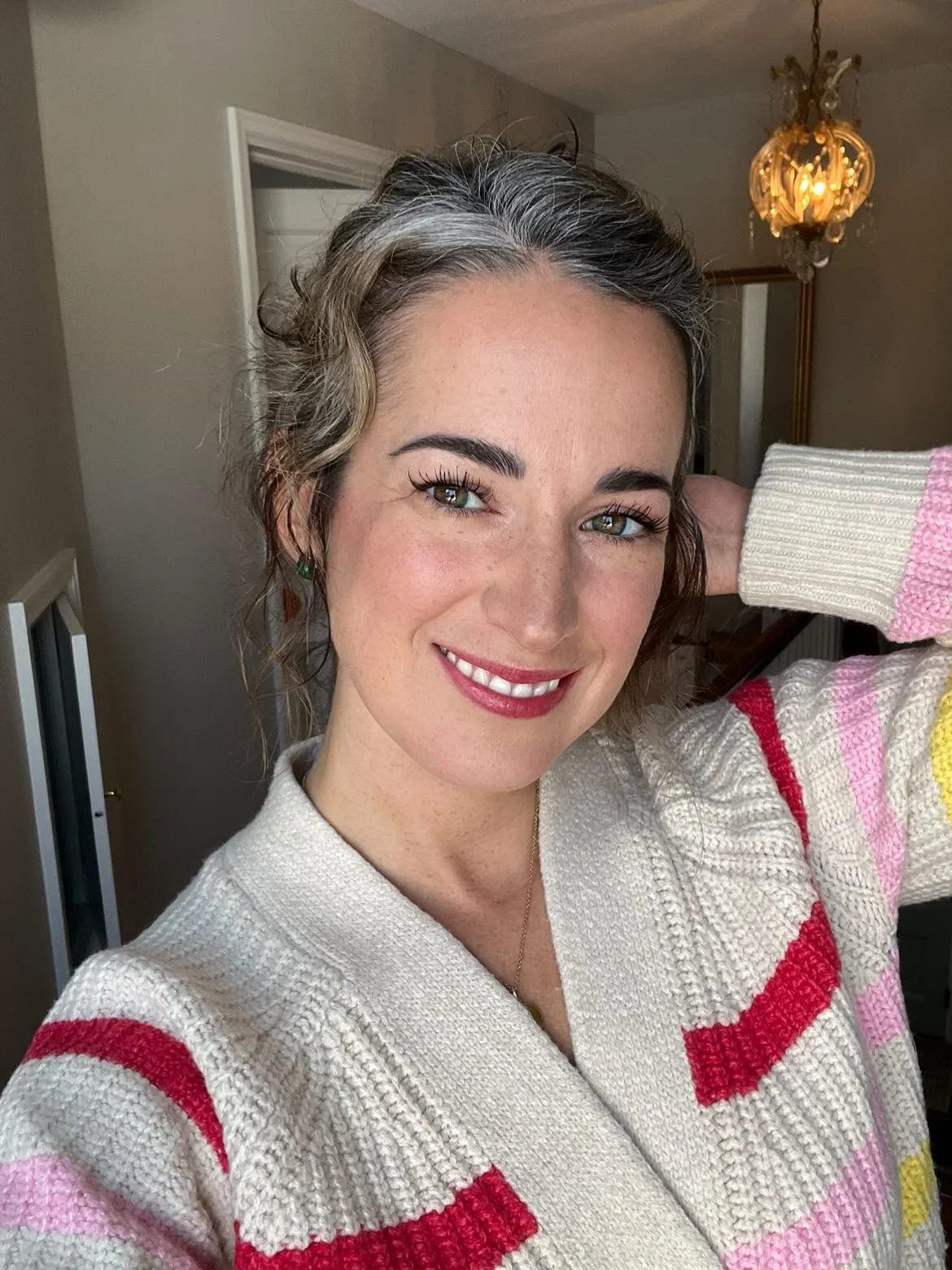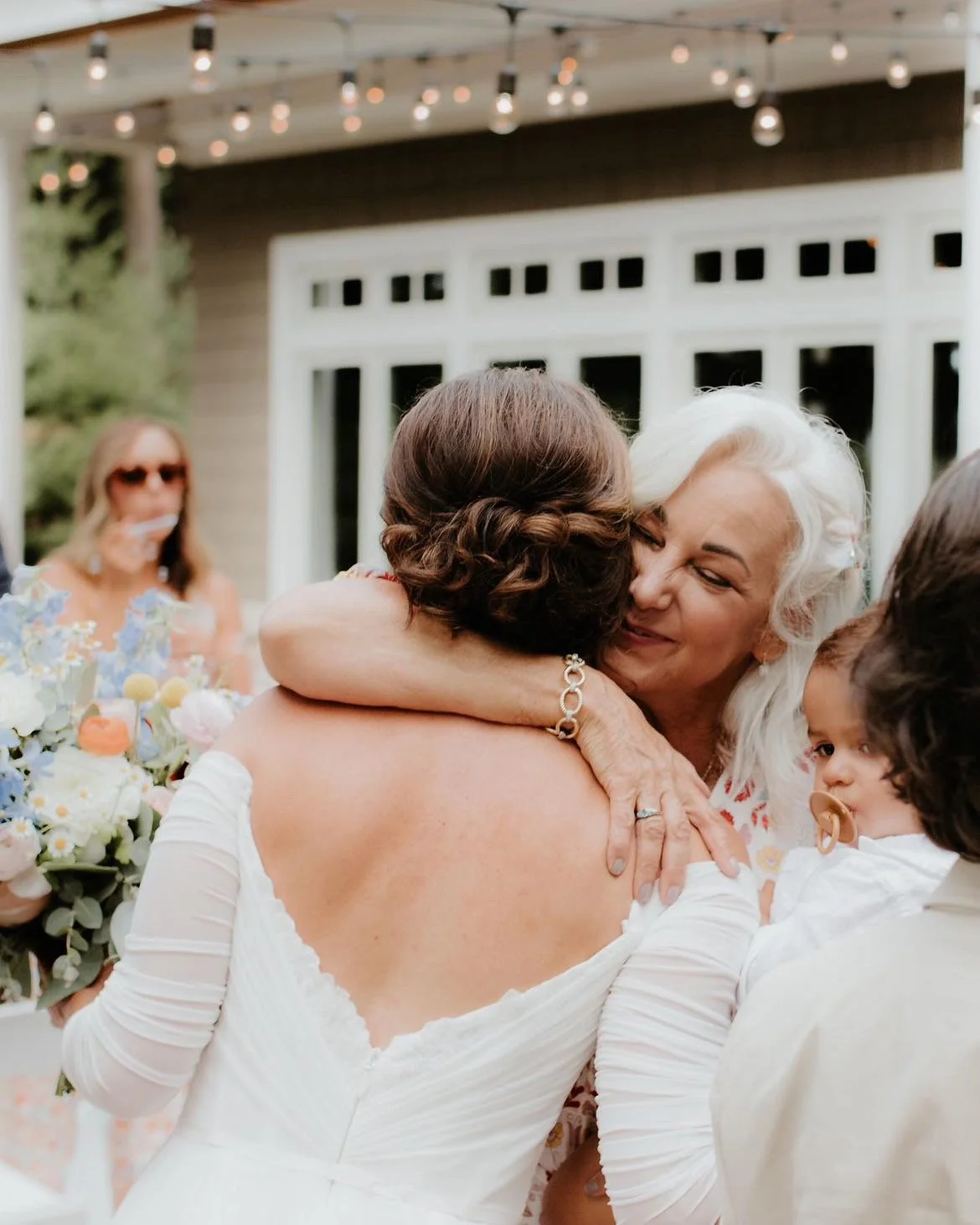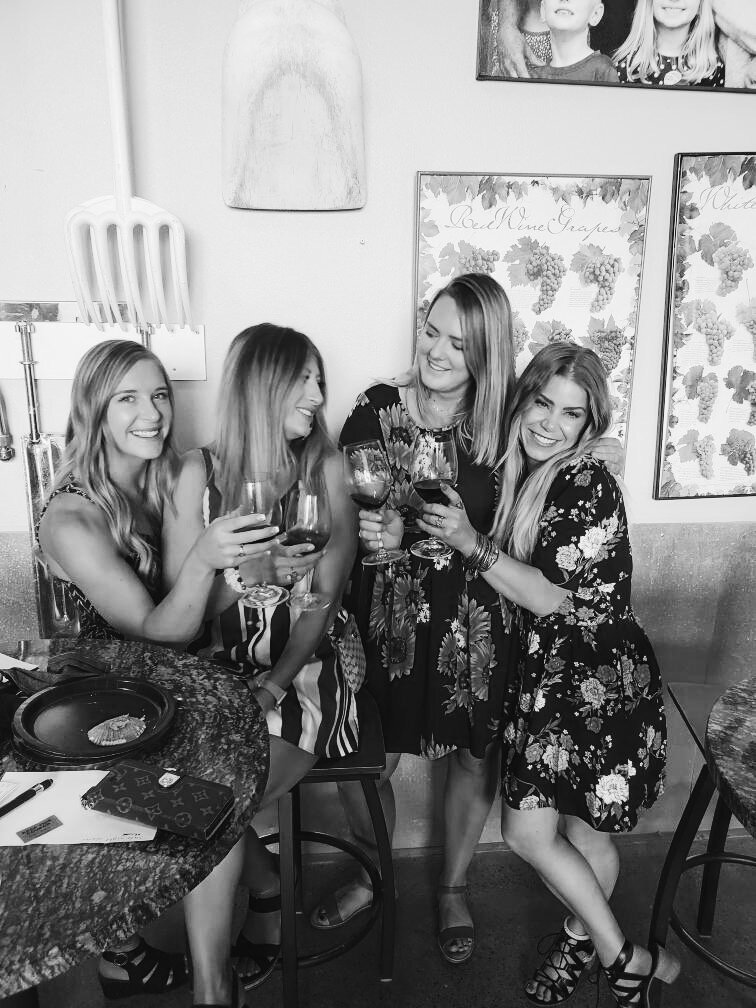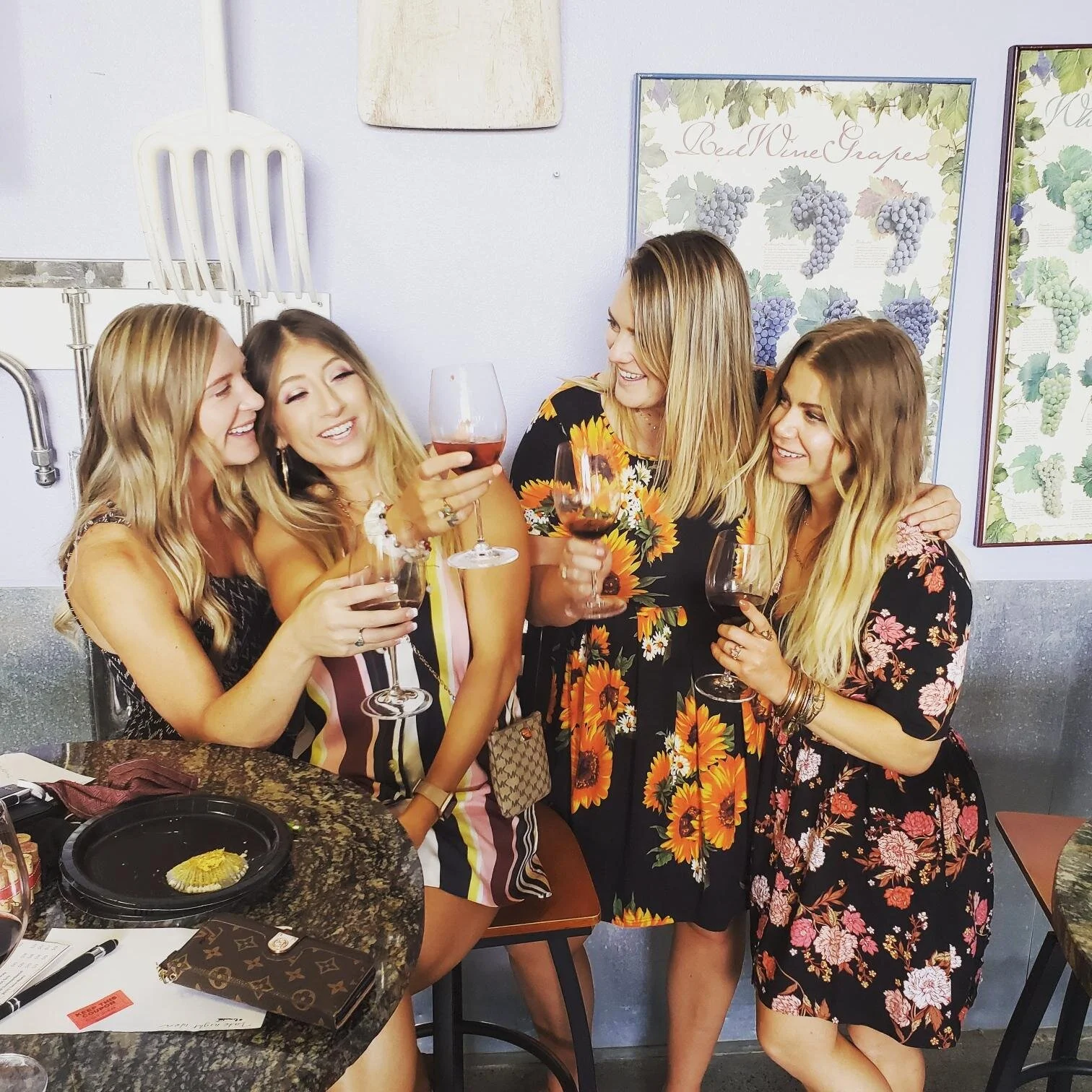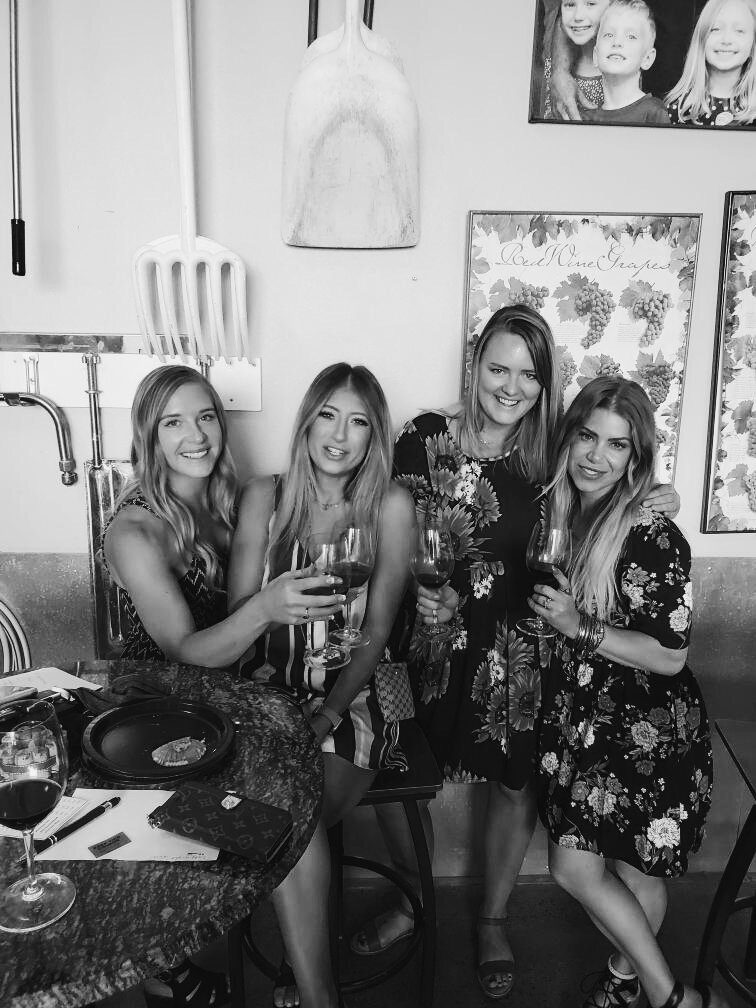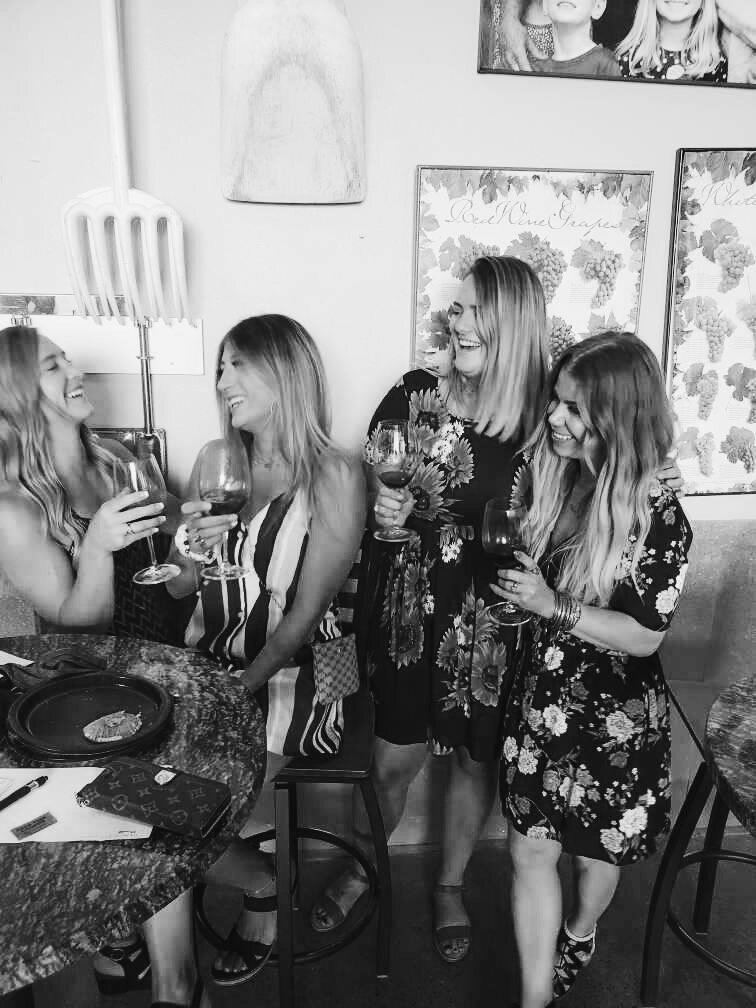Re-branding Weirdness: Why Daring to Be Different Brings You Success
It’s nice - even preferred - to feel special, right? To feel exceptional? However, to be special and exceptional requires being different. So why do we disparage weirdness? Why do we actively criticize/avoid it?
I get into why.
I also get into why we shouldn’t; why our oddities should be celebrated and even cultivated. I share some of my own weirdo tendencies, and offer a pretty strong argument on letting your freak flag fly (whatever that means to you).
Be you. Be awesome. You little weirdo.
xx,
w
Connect with me on Facebook and Instagram @the_nativist
Visit https://clearstem.com/?ref=eubxjtws and use code WHITNEYRICHARDS for 15% off!
Defusing the F-Bomb: What Feminism Actually Is
Feminism gets a bad rap, and is clouded by myths and misunderstandings. I’m here to [possibly] change your understanding, not your mind. This episode aims to clarify and illuminate something many may support without even knowing it: feminism. I debunk myths, I explain what feminism is and is not, and I share my thoughts and experiences being a woman in this world. If you’re a human, this episode is for Y O U. You decide what to believe and how to live your life.
Happy National Women’s History Month.
Connect with me on Facebook and Instagram @the_nativist
xx,
w
Growing Pains: Avoiding the Traps in Optimization and Finding Your Flow in Grow
We’re constantly encouraged to have a growth mindset; to be disciplined; to always strive to improve and to evolve, in virtually every area of life. But can that ever be taken too far? How do you know when it’s become problematic? What can you do to prevent that? Is there ever a time when a growth mindset is not appropriate or beneficial? What is true growth?
In this solo episode, I highlight red flags to be aware of and questions to consider when setting goals and seeking your highest self. I offer a re-definition of your actual highest self, and explore the importance of self-trust. I differentiate between discipline and dogmatism, and propose how to own your routine (rather than it owning you). I explain why rigid rules are common for those with conditions such as ADHD and eating disorders, and what that rigidity indicates. I reveal the reasoning of why I chose The Nativist brand name, and how I feel about it now.
It’s all so simple, yet so complex. C’est la vie.
Connect with me on Facebook and Instagram @the_nativist
Silverevolution
In a world of black and white, gray can be revolutionary, whether you’re accepting life’s nuances or your hair’s natural color. What if we leaned into the gray, instead of fighting or ignoring it? Meg Holmes shares her experience doing just that, by transitioning to her natural hair color and letting her silver shine through. She shares her steps, her thoughts, and her advice, including surprises she’s encountered along the way. We discuss how your beauty is for you to define, and how options empower us all. There are some gold nuggets of wisdom in here, including the dynamic questions Meg suggests asking yourself when. contemplating any life decision.
Beauty on YOUR terms.
You can connect with Meg on Instagram @megstoho and follow along on her journey. Her account is private, so shoot her a friend request and cross those fingers she accepts.
Thank you. Love you. Mean it.
You can find me on Facebook or Instagram @the_nativist
Image by Brekka Hartman Photography
Image by Brekka Hartman Photography
What Does Self Criticism Do for Us?
Do we need self criticism? Does it help us more than harm us? Is it essential to high performance, achievement, and fulfillment? What if we stopped? Would we become complacent? Come with me as we address these questions, and I ask you some more questions that may (will likely, hopefully!) stop you in your tracks and prompt you to think about things (particularly yourself) differently than you ever have before.
Thanks for coming along.
Find me on Facebook and Instagram: @the_nativist
Toxic Venting vs. Healthy Venting
Are you a toxic venter or a healthy venter?
You may know how important feeling and processing your emotions are. Repressing them just allows them to metastasize and eventually explode in a bigger and uglier way. Venting can help you gain perspective and clarity, and assist you in moving forward and healing. Venting can be necessary. Leaving emotions/frustrations/anger bottled up can be toxic - but so can venting if we do it a certain way.
In this episode, I highlight specific signs of both toxic venting and healthy venting, and suggest different ways to release that pressure valve to leave you feeling lighter, happier, clearer, and freer.
The Revisionist History episode I reference at the end is titled Episode #25: Free Brian Williams, from June 7, 2018 (full transcript here ).
I love you.
Thank you for listening! You can find me on Facebook or on Instagram @the_nativist
Indigenous Voices Series Part 2
In this second part of my Indigenous Voices series, I spotlight Sequoia Dance-Leighton, an enrolled member of the Shoshone-Bannock tribes, a descendant of the Assiniboine Red Bottom clan, and a resident of the Nimiipuu (Nez Perce) land. With a bachelor's degree in human development and a master's degree in social and cultural pedagogy, she is now pursuing a PhD in cultural studies and social thought in education.
It's a longer episode than most, simply because it was such a fun, easy, stimulating conversation and I didn't want to stop! This conversation is packed with subtle yet profound life truths.
Sequoia describes how being of mixed descent impacts how she perceives and how she feels perceived, all while she works to fuse those two worlds. She shares her story of connecting with her native heritage and cultural identity. She outlines her approach to balancing: ancient wisdom with newer perspectives; older generations with younger cohorts; professional ambition with self care; and social activism with personal boundaries.
Sequoia tells us about working with the youth and striving to amplify voices that are usually silenced. She gives tips on avoiding micro aggressions and complacency. She explains settler colonialism, and offers a fresh take on viewing the earth and those who call it home. We emphasize the enduring wisdom of indigenous people, and the importance of seeking it out, no matter your ethnicity or location.
This may seem like a niche episode, but its relevance and applications are anything but. If you enjoy it half as much as I did, you'll really dig it.
You can find Sequoia on:
Instagram: @therealrezwife
Twitter: @SequoiaDance
TikTok: @realrezwife
Resources mentioned in the show:
native-land.ca : to find native land on which you live
Chelsey Luger: a trainer/facilitator for the Native Wellness Institute, and the cofounder and editor of Well for Culture.
Taking Accountability and Regulating Our Emotions
This post (and it’s corresponding podcast episode) is per request - and is also actually a specific topic I’ve really wanted to tackle.
Today we’re talking about taking accountability for our actions, and for regulating our emotions.
And as you’ll soon see, there is so.much. to cover here. It’s good stuff, so let’s dive in.
Below, you’ll find a transcription to this episode, so you have the option to read/listen!
You might’ve heard it’s not what hand we’re dealt - it’s what we do with it. We’re not responsible for the initial hand we’re dealt, but we are responsible for how we play it. It’s on us to do something with it. (This right here is a whole other conversation about privilege, drive, luck, agency vs. destiny, etc - but we’ll stay on the surface here.)
It’s easier to blame than it is to take accountability and do the work. And sure, there are legitimate sources of blame, and legitimate challenges (trauma, etc) we’ve experienced that have caused our situation. This doesn’t discount those. Those should be acknowledged and emotionally/physically/psychologically processed, etc. Also, this is pretty nuanced and not always as simple as just willing your way through something. but at the end of the day, still, to truly heal and move forward is up to us. And sometimes (and often) moving forward comes through seeking/accepting the help and resources we need, at least to give us a solid footing. While seeking and receiving may seem passive, and may seem like offloading the responsibility - that’s just not so. They’re active approaches to healing and resolution. We can be surrounded by the best resources and help in the world, but unless we let it in - it’s useless. and the letting it in is entirely up to us.
Let’s tilt this to a slightly different angle. Let’s talk about when people do us dirty, or create the problem. I just got done with my addiction series. Part of this included the perspectives of wives of addicts. Far and away, the most effective and powerful approach and resolving factor were the wives attending to their side of the street. Did they cause the issue? No (though this can get nuanced in many cases, as there are multiple contributing factors in situations involving addiction). But what/whom we’re talking about here, no - the wives were victims here, so to speak. Are they justified in getting angry and blaming their spouse? Sure, absolutely. And it’s important to feel your feelings and express them as necessary, and to not try to good vibe your way out of it, thereby repressing emotions. All emotions serve a purpose and have value, and repressing them only delays (and often magnifies and worsens) their expression. What we resist persists. They’ll come out eventually - usually at a greater magnitude and worse moment. But these wives credit their survival and current mental wellness with working on themselves: seeking therapy, turning inward, etc. They reflected on their own issues, and how those issues were impacting the current situation, and their reactions to the current situation.
For one of the wives, this meant she ended up taking her baby and leaving her husband (which took remarkable strength and courage, considering how young she was and what little she had). Now, she’s healthy, happy, and newly married. She took ownership of herself and her situation. Often, these tough times are gifts because they reveal what isn’t working, and (sometimes forcefully) nudge us into facing and handling that. One of the wives stayed with her husband, and he credits her individual self work for his sobriety. He told me his wife’s “working on herself” was the best thing she could have done because I noticed and wanted to be better as well, which was a huge factor [in] why. I tried to give up alcohol many times before, and when she was finally healed enough to leave, I became strong enough to quit.”
And that’s important to note too: Our actions have ripple effects. We have the power to inspire and uplift others. When we take care of ourselves, that radiates to those around us, and affects the world. When we rise, we can take others with us. Not that that should necessarily be our reason why, but it’s a beautiful secondary motive.
Now let’s talk about when someone says/does something that pisses us off. Bums us out. Triggers us in any way. We often hear (and might even have said): “You made me so mad.” “You hurt my feelings.” “You made me ____ (fill in the blank).” In reality…they’re the stimuli - and how we react to that stimulus is ultimately up to us. As in any scientific experiment, the stimulus is different from the reaction. Different forces. Different entities. And so it is here. Our reaction is and should be separate from what stimulated it.
You might’ve heard the quote by US First Lady Eleanor Roosevelt, “No one can make you feel inferior without your consent.” To give more context to this, Eleanor was responding to reporters’ questions regarding an awkward event in 1935. The Secretary of Labor in the Roosevelt administration was invited to speak at the University of California, Berkeley on the Charter Day of the school. The customary host of the event was unhappy because she felt the chosen speaker should not have been a political figure. She refused to serve as host, and several newspaper commentators deemed her action as a rebuff and an insult. Eleanor was asked at a White House press conference whether the Secretary had been snubbed. “A snub” defined the first lady, “is the effort of a person who feels superior to make someone else feel inferior. To do so, he has to find someone who can be made to feel inferior.”
Another analogy that comes to mind for me is the stimulus (the word/action) is the seed and we are the soil. Whether that soil is fertile (for offense, reactivity, etc) or infertile (repellant to offense) is up to us. And there are quite a few contributing factors to our soil’s fertility, or lack thereof. A reaction is not predetermined and is not automatic. There is space between the stimulus and the reaction. Within that space, power is transferred from the stimulator to the receptor. In the space, we as the receiver get to determine (however consciously and intentionally is up to us) our response.
Here’s where it gets tricky: sometimes that response is hijacked by our subconscious. Our fears and insecurities override our logic, our reasoning, our values, our best intentions. Perhaps our unhealed trauma wounds are triggered, and those are POWERFUL, especially if incurred during our formative years in childhood. We largely and often can’t control if/when we experience trauma, to whatever degree it is. I am in no way victim blaming here - ABSOLUTELY NOT. But for us to extricate ourselves from its chains that strive to control our lives - we must first recognize, and then own it. And this comes through shadow work. Through introspection. Through facing ourselves. Through digging in and getting honest. This process is typically helped by professionals, and trusted loved ones (especially if the trauma is significant). They can illuminate our blind spots, maintain objectivity, and maintain necessary and beneficial objective distance. Even with their help, though, we’re still responsible for doing the work.
As you’ve likely figured out by now, what happens in our formative years affects us today. One of the best ways to get to know someone is to ask them about their childhood. I personally had a fantastic childhood with wonderful, loving, involved parents. However, like virtually everybody else, I still have my stuff. I still have triggers and hangups I’ve had to work through. It’s not always necessarily a reflection of the efficacy and love of your caregivers. None of us make it through life without some wounds. Sometimes, they’re just surface scratches, merely getting our brief attention. Sometimes, they’re bone deep, and if we don’t properly treat them, they worsen and become infected, and that infection spreads, affecting what’s nearby.
For me personally, I would often feel unseen and unheard. As part of this, I also outsourced my validation, and was very reactive. Reactivity is a sign of poor self-emotional regulation. If our moods and our actions and our words depend upon people/situations outside of us, we’ve ceded our power. We’ve ceded our calm and our happiness. We’ve ceded our stability. Only when we can practice that pause, to grant us space between what happened, and how we will handle what happened, will we be empowered. When we respond, rather than react, we feel better and do better. Part of this is recognizing the separation of the stimuli, our thoughts, and our actual core self. If we maintain this distance, we can ascertain when our fears are trying to hijack, when our insecurities are trying to cloud. Otherwise, we’re tossed around by the ever-changing winds, at the mercy of situations and people.
I can tell you from personal experience what a freeing feeling it is to reclaim your power and maintain that calm in the storm. It feels better for you, it feels better for others. Our actions have ripple effects. We don’t live in a vacuum. So you can imagine the compound effect of reactives interacting with other reactives. No wonder we have the division and discord in our world: in relationships, in communities, in business, in politics, in friendships, in religion. We can be powerful catalysts for change, on a micro and macro level, simply by learning to regulate our emotions. Defusing situations by remaining grounded and aware.
Self awareness is key, and not everyone is fully self aware. We’re all at different parts of our journey, to put it euphemistically. In a recent relationship, I saw firsthand - from the other side - how destructive poor emotional self-regulation can be.
A little bit of a back story. Codependency can manifest in various ways. I was codependent in the sense I was a “fixer” and derived my sense of value and worth from fixing, from accommodating, and from caretaking. This is good to an extent, but not in excess, and not to the point of self abandonment. Neither wins when only one set of needs/wants is being met. In a way, I was using that “fixing” and self-denying to regulate my emotions: to feel needed, to feel valuable, to feel desirable, to feel in control, to feel indispensable.
On the other side was my boyfriend, who was codependent in the sense he wholly depended upon externalities to determine his mood, sense of self worth, and identity. I know why he was the way he was (family dynamics in the formative years for the win). I empathize and feel for him. Even so, it was tough to experience. For BOTH of us. Frustration abounded on both sides.
On my side, I’d feel enormous pressure to accommodate his insatiable need for validation. A simple compliment wasn’t enough. Nope. Each one needed to be multi-sentenced, deep, fresh, nuanced, and heavy-hitting. Every single one. Multiply this by 15 or so - A DAY. It was exhausting - which is ironic, because genuine, heartfelt, customized acknowledgements and compliments are my thing. But this just felt forced, and pressured, and required. Don’t get me wrong, he gave what he expected. He could be the king of compliments. But it all felt so heavy. For someone who loves swimming in the depths, pretty soon I was gasping for air.
If we didn’t have the exact same opinion, he’d take it as a personal attack. A condemnation of his taste, his character, his judgment. He wouldn’t directly communicate this - because he needed external harmony for his internal peace. So nothing ever truly got resolved. He’d say one thing and mean another. Not because he was trying to deceive or lie or put one over on me. He was trying to fulfill his idea of what a perfect boyfriend, a perfect son, a perfect citizen, and a perfect employee would do/say, whether or not that reflected his truth. He NEEDED people to view him a certain way because he needed their approval for his own. Their validation of him translated to his validation of him. He didn’t dare to let his true feelings and self show, for fear those would be judged, condemned, discounted, dismissed, and found lacking. (I think many of us can relate to that - humans have worn masks long before COVID-19.) Therefore, he wasn’t truly expressing himself. We could never truly connect, because connection requires authenticity.
He had an internal script he needed the world and its people to follow for him to maintain peace and happiness. As a fellow world dweller, I’m sure you know by now, the world obeys NO script. If we have a script, it laughs and flips the middle finger. Life happens. And people have agency and their own wants/needs/fears/problems/objectives. We’re all just muddling around together. Sometimes those factors align, and often they clash. C’est la vie. We can’t control others - only ourselves. And that right there underscores the importance of learning how to regulate ourselves, and not cede this power to others.
Though he never communicated the content of his script, I’d sense it. And just like I loathe others telling me what to do, this was no different. Not a recipe for romantic bliss. I felt exhausted and resentful for all he required of me, and he felt unfulfilled and unsupported. My resentment would grow, and his frustration would increase. I remember one particular argument wherein he criticized me for “making” him feel and react a certain way. I pushed back, cited Eleanor Roosevelt, and asserted no one can “make” us feel anything - our response is up to us. He clearly let me know he did not agree.
As with anything else, this is nuanced. It’s not as easy as just emotionally distancing ourselves from anyone or anything with which we interact. There’s actual value in being affected by situations and people. It’s an integral part of empathy, and connection, and progress. Feeling inspired by a friend’s win, feeling gutted by a community tragedy, feeling uplifted by a stranger’s remark.
What we’re talking about here is the RESPONSE, not the initial reaction - both internally and externally. Knowing our worth doesn’t fluctuate - it’s constant and it’s real - whether or not you/others see it at any given time. It doesn’t depend on what you do, what you say, what you believe, what you achieve, what you look like.
Really, any time we’re triggered, fear is the underlying emotion. Fear of physical/emotional pain. Fear of not having enough to meet our physical/emotional needs (prompting a scarcity mindset). Fear of the unknown and how it could affect our current wellbeing (nurturing xenophobia). Fear of being deemed inadequate (causing shame).
So let’s think about shame. Shame is what happens when we view ourselves through others’ eyes. What if you removed that filter? What if instead you asked yourself - and only yourself - if you’re okay with that action/characteristic/thought? If it/they align with your values, or if they contribute to the kind of person you want to be, or if they harm others? If your opinion was the only one that mattered, are you okay with the person you are? With what you’ve done and how you did it? With what you do and how you do it? With who you are? When you think of your ideal self, is that conceived by you or others? Are you able to separate others’ views/expectations from your own?
It’s not your job to like me. It is my job to like me. And vice versa. You’re not obligated to like me, and I’m not obligated to try to get you to like me. And vice versa. It’s not your job to scale my walls to give me love. It’s my job to open myself up to receive love (all kinds of love: familial/romantic/platonic). And vice versa. This opening to allow love comes from shadow work, self reflection, self awareness, self development, self acceptance, and self love. All inside jobs.
People can be fickle and mercurial. They can be blinded by their own fears/insecurities/distractions. They have their own stresses and worries. They can get hung up on certain surface characteristics, certain defensive mannerisms, certain societal detractors, certain psychological disruptors (in themselves/others). We don’t always clearly see others (because we often don’t clearly see ourselves!). Many are simply reacting, rather than responding. And then others react to those reactions, and so on. Dominoes action. Chaos, right?
But we can do our part to mitigate and lessen that chaos - by taking responsibility and being accountable for ourselves, and our responses.
Two concepts that changed my life are: impermanence and subjectivity. Before, if I got rejected for a team, or an opportunity, or a _______ (personally/professionally), I’d accept and internalize defeat. View that “ruling” as final and binding. Not anymore.
Now I accept “defeat,” sure - but I keep it contained and in its appropriate context. I don’t view it as an attack on my worth, identity, or ability. I accept it and move on - either in further pursuit of that same objective (if that’s what I truly want) or another (if I choose to redirect). I use the feedback to adjust and improve if necessary.
I also recognize it’s all subjective: others’ personal/professional opinions of me. No matter how accomplished or experienced or cool they are. Humans can do miraculous feats (learn new skills, master existing skills, etc) when properly motivated. We all have so much power and potential - independent of others’ opinions. Another’s recognition of this and acceptance of us doesn’t diminish this.
Let’s not outsource our acceptance, our validation, and our happiness.
And sometimes others will hold us accountable, as they should. This can be uncomfortable at best, and infuriating at worst, especially when it comes to our unconscious biases, especially regarding racism and sexism. We all have blind spots. We all have biases - they’re a cognitive requirement of being human. But rather than getting triggered, let’s filter those accountability call outs through that pause between stimulus and response. Let’s examine if and why it resonates with us. Let’s examine if and why it angers us. Let’s examine if and why it saddens us. Let’s analyze it as objectively as we can (we’ll never achieve full objectivity, but shooting high helps elevate our landing spot).
And while we’re at it, this is a solid and key practice for every other situation in life. If we find we’re triggered by someone/something, it’s incumbent upon us to delve in and identify why, instead of offloading onto the offender and others to regulate our emotions and to adjust to our “script” (sound familiar?). If we don’t want others to do that to us, why would we expect them to allow us to do it to them? For example, if we see a scantily-clad woman feeling herself and posting a selfie, and we feel disgust - that has NOTHING to do with that woman or her actions, and everything to do with our response to it. What’s driving our disgust? Envy of her confidence and audacity to shatter the shackles of society and its [fickle] beauty/decorum standards? Envious because we ourselves don’t dare to do so? Insecurity with our own body? Moral indignation she is dressing immodestly and not respecting our belief system?
This doesn’t mean we accept responsibility and blame for everything that happens. Not at all. It simply means we can only control ourselves, and for our own health, wellbeing, stability, and happiness, we have to take ownership of ourselves. This is so we can lessen our reactivity and triggers. And this doesn’t mean we must always remain stoic and reserved and nice. NOPE. We’re humans. And sometimes strong situations call for strong responses.
And you may have heard me speak repeatedly on the importance of boundaries. They are PARAMOUNT to our individual and collective health, wellbeing, and success. IMPERATIVE, y’all. They allow us to set boundaries without being consumed and leveled by guilt and people-pleasing instincts (thereby saving our precious bandwidth for what truly counts and preventing suffocating resentment when we’re maxed out and not acknowledged by those we’re pleasing). They also allow us to respect when others set boundaries with us (because none of us are perfect, remember? Nor omniscient). Boundaries are for our individual and collective good. They allow us to reserve our time and energy for what we need to focus on, thereby helping us be more compassionate, less depleted, more fulfilled, and more effective.
The Internet has a wellspring of self-regulation options and guidance. Here are a few tips:
Acceptance and curiosity. First step, accept. ALL of our emotions are messengers, conveying valuable info we can use to improve our understanding of ourselves, the situation, and possible solutions. And by staying curious, this eases the weight of the feeling(s). It infuses it with wonder, which makes it more enjoyable, and motivates us to explore further (thereby hopefully preventing - or at least reducing - future occurrences). It also shifts the focus from problem to possibilities, from misery to musing, from suffering to solution.
Regulation over repression. Like we said before, what we resist, persists. Repression just kicks the ball down the road, and facilitates festering.
Identify your feelings. As Daniel Goleman, PhD and two-time Pulitzer Prize-nominated author and science journalist advises, recognizing and naming your emotion arrests the progress of the “negative” feelings. When you feel yourself getting angry, simply saying, “I’m getting upset” shifts the energy from your emotional center to your verbal cortex. BOOM. Life hack.
Keep a mood journal. This will help with venting, with recognizing triggers and patterns, and with illuminating blind spots.
Seek insight from a professional or trusted loved one. Therapy is a yes for EVERYONE - whether you feel you need it or not. They can listen objectively, provide perspectives to consider, and give guidance on effectively reframing and navigating it all. But if you’re not jazzed about that - for personal or financial reasons - a trusted individual can also offer valuable feedback on aspects about yourself/situation, and illuminate blind spots.
Allow yourself space - literally and figuratively. This is important. Sometimes situations demand immediate attention/action - in which case deep breathing is key - but otherwise, time and space to collect your thoughts and connect to yourself can make all the difference, both in how you feel and how you respond.
Breathe. Breathing is shockingly simple yet astoundingly effective. Whether you want it to or not, breathing deeply activates your parasympathetic nervous system. This signals your brain to tell the anxious part you're safe and don't need to fight, flee, or freeze. Deep breathing gets more oxygen to the thinking brain, so you’re able to respond more effectively and feel better doing it. There are various methods: box breathing (eg inhale 5 seconds-hold 5-exhale 5-hold 5 and repeat); inhale 4 seconds-hold 7-exhale 8 and repeat; and simply exhaling longer than you inhale - for as many rounds as any of these take to feel more relaxed.
In summary:
It’s up to us to regulate our emotions. It’s not on others to make us feel happy, or soothed, or comforted, or calm. Others don’t make us mad, or sad, or frustrated.
That’s on us. They supply the stimulus, we provide the response.
Sometimes those are knee-jerk reactions. Sometimes mental health issues/trauma/patterned thinking and behavior/fear/stress/insecurities drive those reactions.
Sometimes we can override them.
That’s why self awareness is crucial to empower us to respond, not just react.
Fragility is when we’re owned by the stimulus.
Like Viktor Frankl, the Austrian neurologist, psychiatrist, philosopher, author, and Holocaust survivor says: “Between stimulus and response there is a space. In that space is our power to choose our response. In our response lies our growth and our freedom.”
Trauma Up Close
This episode is for ALL OF US: male, female, young, old - and everyone in between. Trauma does not discriminate. It affects far more than you might know, whether directly or indirectly, and often carries significant shame and stigma. We aim to help dissolve that.
The brave and beautiful Elise Blaser shares her personal story experiencing and healing from sexual assault, and alchemizing it into empathy and insight as a crisis counselor and parent. She is a remarkable human being
Elise and I discuss trauma’s immediate and long-term effects, and how to address them. We cover coping methods - healthy and unhealthy - and trauma’s various manifestations. We note various reasons why victims can doubt - and even unconsciously suppress - their victimhood, and how to recognize it in yourself. We tackle the damaging myths surrounding trauma.
We highlight risk factors and how to mitigate them (key for everyone to know, especially parents and caregivers), and offer resources for preventing and healing from trauma. Knowledge is power.
This is important.
To access the Crisis Text Line Elise mentions in the episode, text HOME to 741741. The Crisis Text Line provides free, 24/7 support via text message, and are there for everything: anxiety, depression, suicide, school.
You can find Elise on Instagram: @eliselilaa where she continually shares insight and resources on various mental health issues: trauma, body image, etc.
What Self Love REALLY Looks Like
This topic was requested by a follower, with the acknowledgement that it “already is talked about so much, but we need it more than ever.” WORD. That’s exactly right.
Do you ever feel like you’re constantly in the self-love hole? No matter how much self care you do, or mantras you recite, or exhalations you release, you still feel drained? Regularly filled with negativity/doubt/sadness/shame/anger/resentment? If so, this is for you, no matter your age, gender, class, etc.
I cover what true self care looks like, and how guidance on this topic is often incomplete and even misleading.
Though I always keep it real, I get particularly vulnerable with this episode. I share a personal experience, personal enough to prompt the “maybe I shouldn’t share this” thoughts. But it’s my truth, it’s relevant, and [hopefully] valuable. So here it is.
Opinions and guidance on this topic are ubiquitous. It’s constantly referenced and encouraged and celebrated and highlighted. And it should be, don’t get me wrong. But. I think much of that guidance is incomplete. Dare I say much of it (though not intentionally) misleads?
Here’s why.
Self care we often hear about entails feel-good self care. Immediate, automatically-soothing self care. You know, massages, baths, naps, etc. Don’t get me wrong: these are an integral part of self care, but they’re just that: a part. If you rely solely on them, you’ll only get partial (and temporary) results.
Think about your personal experience with the lighter side of self care. Does it feel like you can never get enough? Like you’re always in the hole? Do you feel like even when you get a massage, or extra sleep, and though it feels good in the moment, it doesn’t quite hit the TRUE spot? It doesn’t extend far down enough, as if maybe all the bubble baths in the world won’t quite ease the heaviness.
So what else does self care entail, particularly if you want lasting, true results? Results as in a life and body you don’t constantly need to recover from/escape?
Self reflection. I’m not talking the surface self check ins, safe from the reach of heaviness and repressed emotions. I’m talking DIGGING IN. Getting still and real with yourself. Leaning into your shadows. Facing the stuff that brings you to your knees. Practicing radical self honesty. Staying put - physically, mentally, and emotionally - and riding the waves of shame. Gritting your teeth and illuminating those areas where you feel scared, inadequate, defeated. Unpacking why you feel what you feel. Gently but firmly leveling with yourself.
While this can all be done on your own, it also helps to have a caring, objective, and honest third party to spotlight your blind spots and offer perspective. This can be a therapist or trusted confidant. While I highly recommend it - outside perspectives can be invaluable - it’s also crucial you learn to sit with yourself, and truly explore your depths alone. Without distraction.
Walk through the fire. The fire that cleanses and purifies. Just dancing around it with affirmations and inspirational quotes won’t do it. Again, I strongly advocate affirmations and inspirational quotes, but they’re not a cure-all. They’re just part of your toolbox. The fire is there, waiting to burn away what no longer serves you, and forge you into whom you were meant - and deserve - to be. I see self love as a mode of self empowerment.
Self love calls for you to honor yourself, which means not betraying yourself.
Not betraying your truth. Not violating your boundaries - with yourself and others. Not carrying what isn’t yours to carry.
I’ll share a personal story of how I learned I was betraying myself. You might relate.
I’ve been single for almost all of my life. As I outlined in a previous social media post, I don’t believe there’s a simple, reductive reason why. As with anyone, there are multiple contributing factors to why we’re each in our current life statuses, right?
For many years I let myself believe I was perma-single because I was somehow…deficient. For whatever reason. Maybe I was missing a chip preventing me from falling in love. My friends and I used to call myself the Ice Queen, for how emotionally uninvested I could be. Then in my mid-20s I fell in love (spoiler alert: didn’t last), so that wasn’t it.
Hmm, new theories. Well, maybe I’m just too picky, or independent, or commitment-averse, or wild. And/or maybe I’m a self sabotager. I mean, here I am, defying the norm and expectations by daring to still be single into my 30s. Surely that’s pathological, right? I’m supposed to be married with kids by now (or so my immediate society continually preached).
So as another relationship fell through (almost always from me bailing), these theories really solidified. My self-concept as a broken person in desperate need of healing really gelled. So with this mindset, I entered my most recent relationship. I even warned my new boyfriend my resistance would soon set in and I would start to pull away, but that he should just power through and not take it as personal. I helped set the framework of me as the problem one, and he sustained it.
Fast forward a few weeks, and the resistance was NOT. LETTING UP. In fact, it was deepening, despite my best attempts at dissolving it. We argued often and intensely. Essentially, it came down to incompatibility of our wants and needs in a relationship. Almost always, my resistance and “issues” were cited as the troublemakers.
And I allowed that. I continually beat myself up for not being a better partner. For falling short. For not doing more, being more, saying more. For feeling resistance. For feeling frustrated and resentful. Throughout my life, I’ve tried being everything to everyone: the best girlfriend, the best sister, the best friend, the best daughter, the best employee, the best light bringer, the best ally. The ultimate fixer, the savior to all. I had a few friends going through extremely tough times, and constantly being there for consumed much of my mental and emotional bandwidth. I felt depleted from giving my all…and it still wasn’t enough. So I accepted the blame for the relationship storms. Clearly, I was just too selfish. He was prioritizing me to the absolute max. Almost anything he requested, he gave: maximum time, maximum attention, maximum focus, maximum words of affirmation. Like…more than I have ever received from any one person in my entire life.
Sounds like a dream, right? Yet…
I felt…exhausted. Maybe I’d just been on my own too long. Maybe I was too set in my ways. I just needed to get over myself and prioritize him more, give him more, give him what he was wanting and needing. With this relationship, I actually truly wanted to make it work. To work through the suck, to go all in, to come out the other side. I wanted my first and lasting success story. I really cared about him.
I interpreted my resentment, anger, and frustration regarding our relationship as weaknesses, not red flags. My mistake.
Finally, he’d had enough. Resentment was building on both sides, for opposite reasons. Even though I was pissed, when he called to break it off, it still stung. I remember thinking, “Oh man. This could shatter me.” Because though I was deeply relieved, I was also [initially] deeply hurt. It felt like a giant, confirming dose of “you’re a shitty partner and will never give enough/be enough, no matter how hard you try.” Let the shame storm commence.
I bathed in the shame and dejection for about two hours. Then one of my closest friends called about something unrelated. When I broke the news to her, she immediately urged me to fight for the relationship, to not give up. To fight for my relationship with him like I’d fought for my friendship with her. As I considered it, I felt a sense of bone-deep calm wash over me. I suddenly felt completely at peace with how things turned out, and had absolutely no desire to change them.
The next day, I woke feeling hopeful. Upbeat. Later that day, my best friend called to discuss the breakup. Though I didn’t feel down and out like I expected, I still carried the heaviness of believing the failed relationship was largely my fault. I viewed it as confirmation I simply wasn’t cut out for a lasting relationship, and I would just make peace with that.
Thank god my best amiga is as wise as she is. As always, she listened actively and patiently, then cut through the noise, straight to the core. She noted how I’d never faulted or shamed him for his needs. She also gently averred I wasn’t honoring MY needs. I was so focused on his unmet needs, I wasn’t asserting my own.
It was one of THE biggest clarifying moments of my entire life. Total breakthrough. I’d recently vaguely started to notice I’d always been more concerned with what I brought to relationships than what I wanted/required from them. I’m not saying I’m a total innocent, who only gives and never takes (in relationships or in general). That’s definitely not true. But, in trying to be everything to everyone, I’d lost myself. I’d not only stopped advocating for what I needed/wanted, I also stopped identifying what I needed/wanted.
(Stay with me - I’m tying this back into self love, I swear!) Not only that, as my bestie pointed out, I also wasn’t honoring my intuition. The signs my mind, soul, and body were repeatedly giving me telling me the relationship wasn’t a true, lasting fit.
I had effectively, yet unintentionally, betrayed myself. I betrayed myself by not setting and honoring boundaries with myself and others. I betrayed myself by accepting blame that wasn’t mine. By carrying what wasn’t mine to carry. By not knowing and communicating and respecting my wants and needs. By overriding my intuition.
I’ll be honest, sharing this story was…tough. My default has always been to take the blame. Part of this is from my past, and part of this is because I feared if I unapologetically spoke my truth, people would think me arrogant, narcissistic, self-unaware, and untrustworthy. I always felt compelled to both internally and externally step up and accept the heat. That’s what evolved people do, that’s what leaders do, that’s what self-aware people do.
But now I’ve realized there’s more to it than that. Being self aware and unapologetic aren’t mutually exclusive. It’s okay to tell my truth untempered by self deprecation. This doesn’t mean I don’t see or admit my faults. I absolutely do, and am forever committed to personal development. But I am also done with taking on what isn’t mine. I’m done worrying about being/appearing selfish and unaware. Not everyone will understand, and agree. I relieve myself of the expectation to convince others, and I relieve others of the expectation to validate me. All I can do is live and speak my truth; how others receive it is their business.
I’m done mistrusting myself. I’m done abandoning myself in the name of self awareness.
I will continue to seek opportunities and feedback to learn and grow, but I won’t lose myself in the process.
The process of honoring, loving, respecting, and empowering yourself isn’t gentle…but it’s transformative. It’ll bring you relief like you’ve never before experienced in your life. Earth-shattering, authentic relief. Peace. Well-being.
I speak from experience. Ever since that post-breakup conversation with my bestie two months ago, something clicked. I’ve been transformed. I returned to myself. I shed the shame and the guilt and the burden I’d been carrying virtually my entire life. I reclaimed my power, my truth. My LOVE. This might sound hyperbolic and dramatic, but remember what I said about speaking my truth? You don’t have to believe me, but I can unequivocally say I’ve been utterly euphoric. I’ve been flooded with happiness, gratitude, acceptance, and peace. I’d wake with a giant smile on my face (even at 4 am), and it didn’t stop until I easily drifted off to sleep that night. I had more patience, more clarity, more brainpower. It actually concerned me at first: I’d just been dumped, how could I feel on top of the world? Surely this was a false high, part of the healing process. The calm before the storm. A delayed processing of emotions, the “denial” phase of the grieving process. I’d probs crash in a few days. And yet…no crash. I’m still consistently riding cloud nine.
I’ve always been happy and grateful overall but this is different. I feel so stable, so solid, so FULFILLED.
And I credit this to coming back to myself. Honoring and respecting myself, in every way. Even if it inconveniences others, even if it disagrees with others. This doesn’t mean I won’t honor and respect them too - it’s not all about me and getting mine. It’s about balancing, and ensuring I don’t lose myself in accommodating others.
Essentially, it comes down to taking responsibility for ourselves: for our wellbeing, for our actions, for our reactions, for our beliefs, for our thoughts. For our wants and our needs. For our voids. For our validation. For our truth. For our potential.
We’re all capable of being toxic. None of us are perfect. Nobody always gets it right. Not one person is 100% innocent 100% of the time. We all have bangs and bruises from life (some more severe than others’) that can continue to impact our life and others’. Life might’ve dealt us a tough hand (some tougher than others). Sure, it’s important to grant ourselves grace and empathy. However, comprehensive self love extends beyond that. Our response, our healing, is on us - so we don’t bleed onto others.
It’s not my job to “fix” others. And let’s be honest, to think it is is actually (though well-intentioned) arrogant and disrespectful to them, their journey, and their capabilities. Again, we’re each responsible for ourselves. I will be the best friend, partner, family member, and human I can be, but I must honor my limits and boundaries. I am done carrying what’s not mine.
If I truly want to help others and contribute to the highest good, the best things I can do are continue to self reflect and love myself.
However, self reflection and self healing can also be a slippery slope I’ve skidded down most of my life. Solely seeing myself as perpetually “needing healing” contributed to my “broken” self concept, allowing me to so easily fall into the relationship dynamics I did. So now I see it less as healing, and more as evolving. Growing. Opening. Manifesting. Aligning. Awakening.
I think of all the time and energy I’ve spent on disliking myself: my body, my looks, my characteristics, my capabilities. I’ve cultivated awareness of sly negative self talk. Now when body dysmporphic thoughts creep in and I start criticizing my body, I stop and think, “What a waste of time and energy. I could use this energy to do something productive and useful.” That didn’t come automatically. It took time to lay the groundwork and build awareness and annihilate those thoughts (fun fact: a definition of annihilate is to convert into radiant energy).
Loving ourselves is accepting ourselves. Our incongruences. Our oddities. Our “flaws.” Our quirks. Our layers. Accepting ourselves, but not sliding into complacency or self denial. Accepting ourselves while becoming the best version of ourselves. Doing right by us while doing right by others.
Both the lighter and heavier sides of self care aren’t intended to be one and done. They’re maintenance measures, intended to be repeated. It’s a journey, a process. An awakening. As long as we keep living, we gotta keep loving.
So here’s to cherishing ourselves. Accepting compliments. Owning our strengths. Honing our growth areas. Respecting our boundaries. Speaking well of ourselves. Fueling ourselves. Prioritizing ourselves. Giving and receiving love. BECAUSE WE DESERVE IT.
Here’s why.
Self care we often hear about entails feel-good self care. Immediate, automatically-soothing self care. You know, massages, baths, naps, etc. Don’t get me wrong: these are an integral part of self care, but they’re just that: a part. If you rely solely on them, you’ll only get partial (and temporary) results.
Think about your personal experience with the lighter side of self care. Does it feel like you can never get enough? Like you’re always in the hole? Do you feel like even when you get a massage, or extra sleep, and though it feels good in the moment, it doesn’t quite hit the TRUE spot? It doesn’t extend far down enough, as if maybe all the bubble baths in the world won’t quite ease the heaviness.
So what else does self care entail, particularly if you want lasting, true results? Results as in a life and body you don’t constantly need to recover from/escape?
Self reflection. I’m not talking the surface self check ins, safe from the reach of heaviness and repressed emotions. I’m talking DIGGING IN. Getting still and real with yourself. Leaning into your shadows. Facing the stuff that brings you to your knees. Practicing radical self honesty. Staying put - physically, mentally, and emotionally - and riding the waves of shame. Gritting your teeth and illuminating those areas where you feel scared, inadequate, defeated. Unpacking why you feel what you feel. Gently but firmly leveling with yourself.
While this can all be done on your own, it also helps to have a caring, objective, and honest third party to spotlight your blind spots and offer perspective. This can be a therapist or trusted confidant. While I highly recommend it - outside perspectives can be invaluable - it’s also crucial you learn to sit with yourself, and truly explore your depths alone. Without distraction.
Walk through the fire. The fire that cleanses and purifies. Just dancing around it with affirmations and inspirational quotes won’t do it. Again, I strongly advocate affirmations and inspirational quotes, but they’re not a cure-all. They’re just part of your toolbox. The fire is there, waiting to burn away what no longer serves you, and forge you into whom you were meant - and deserve - to be. I see self love as a mode of self empowerment.
Self love calls for you to honor yourself, which means not betraying yourself.
Not betraying your truth. Not violating your boundaries - with yourself and others. Not carrying what isn’t yours to carry.
I’ll share a personal story of how I learned I was betraying myself. You might relate.
I’ve been single for almost all of my life. As I outlined in a previous social media post, I don’t believe there’s a simple, reductive reason why. As with anyone, there are multiple contributing factors to why we’re each in our current life statuses, right?
For many years I let myself believe I was perma-single because I was somehow…deficient. For whatever reason. Maybe I was missing a chip preventing me from falling in love. My friends and I used to call myself the Ice Queen, for how emotionally uninvested I could be. Then in my mid-20s I fell in love (spoiler alert: didn’t last), so that wasn’t it.
Hmm, new theories. Well, maybe I’m just too picky, or independent, or commitment-averse, or wild. And/or maybe I’m a self sabotager. I mean, here I am, defying the norm and expectations by daring to still be single into my 30s. Surely that’s pathological, right? I’m supposed to be married with kids by now (or so my immediate society continually preached).
So as another relationship fell through (almost always from me bailing), these theories really solidified. My self-concept as a broken person in desperate need of healing really gelled. So with this mindset, I entered my most recent relationship. I even warned my new boyfriend my resistance would soon set in and I would start to pull away, but that he should just power through and not take it as personal. I helped set the framework of me as the problem one, and he sustained it.
Fast forward a few weeks, and the resistance was NOT. LETTING UP. In fact, it was deepening, despite my best attempts at dissolving it. We argued often and intensely. Essentially, it came down to incompatibility of our wants and needs in a relationship. Almost always, my resistance and “issues” were cited as the troublemakers.
And I allowed that. I continually beat myself up for not being a better partner. For falling short. For not doing more, being more, saying more. For feeling resistance. For feeling frustrated and resentful. Throughout my life, I’ve tried being everything to everyone: the best girlfriend, the best sister, the best friend, the best daughter, the best employee, the best light bringer, the best ally. The ultimate fixer, the savior to all. I had a few friends going through extremely tough times, and constantly being there for consumed much of my mental and emotional bandwidth. I felt depleted from giving my all…and it still wasn’t enough. So I accepted the blame for the relationship storms. Clearly, I was just too selfish. He was prioritizing me to the absolute max. Almost anything he requested, he gave: maximum time, maximum attention, maximum focus, maximum words of affirmation. Like…more than I have ever received from any one person in my entire life.
Sounds like a dream, right? Yet…
I felt…exhausted. Maybe I’d just been on my own too long. Maybe I was too set in my ways. I just needed to get over myself and prioritize him more, give him more, give him what he was wanting and needing. With this relationship, I actually truly wanted to make it work. To work through the suck, to go all in, to come out the other side. I wanted my first and lasting success story. I really cared about him.
I interpreted my resentment, anger, and frustration regarding our relationship as weaknesses, not red flags. My mistake.
Finally, he’d had enough. Resentment was building on both sides, for opposite reasons. Even though I was pissed, when he called to break it off, it still stung. I remember thinking, “Oh man. This could shatter me.” Because though I was deeply relieved, I was also [initially] deeply hurt. It felt like a giant, confirming dose of “you’re a shitty partner and will never give enough/be enough, no matter how hard you try.” Let the shame storm commence.
I bathed in the shame and dejection for about two hours. Then one of my closest friends called about something unrelated. When I broke the news to her, she immediately urged me to fight for the relationship, to not give up. To fight for my relationship with him like I’d fought for my friendship with her. As I considered it, I felt a sense of bone-deep calm wash over me. I suddenly felt completely at peace with how things turned out, and had absolutely no desire to change them.
The next day, I woke feeling hopeful. Upbeat. Later that day, my best friend called to discuss the breakup. Though I didn’t feel down and out like I expected, I still carried the heaviness of believing the failed relationship was largely my fault. I viewed it as confirmation I simply wasn’t cut out for a lasting relationship, and I would just make peace with that.
Thank god my best amiga is as wise as she is. As always, she listened actively and patiently, then cut through the noise, straight to the core. She noted how I’d never faulted or shamed him for his needs. She also gently averred I wasn’t honoring MY needs. I was so focused on his unmet needs, I wasn’t asserting my own.
It was one of THE biggest clarifying moments of my entire life. Total breakthrough. I’d recently vaguely started to notice I’d always been more concerned with what I brought to relationships than what I wanted/required from them. I’m not saying I’m a total innocent, who only gives and never takes (in relationships or in general). That’s definitely not true. But, in trying to be everything to everyone, I’d lost myself. I’d not only stopped advocating for what I needed/wanted, I also stopped identifying what I needed/wanted.
(Stay with me - I’m tying this back into self love, I swear!) Not only that, as my bestie pointed out, I also wasn’t honoring my intuition. The signs my mind, soul, and body were repeatedly giving me telling me the relationship wasn’t a true, lasting fit.
I had effectively, yet unintentionally, betrayed myself. I betrayed myself by not setting and honoring boundaries with myself and others. I betrayed myself by accepting blame that wasn’t mine. By carrying what wasn’t mine to carry. By not knowing and communicating and respecting my wants and needs. By overriding my intuition.
I’ll be honest, sharing this story was…tough. My default has always been to take the blame. Part of this is from my past, and part of this is because I feared if I unapologetically spoke my truth, people would think me arrogant, narcissistic, self-unaware, and untrustworthy. I always felt compelled to both internally and externally step up and accept the heat. That’s what evolved people do, that’s what leaders do, that’s what self-aware people do.
But now I’ve realized there’s more to it than that. Being self aware and unapologetic aren’t mutually exclusive. It’s okay to tell my truth untempered by self deprecation. This doesn’t mean I don’t see or admit my faults. I absolutely do, and am forever committed to personal development. But I am also done with taking on what isn’t mine. I’m done worrying about being/appearing selfish and unaware. Not everyone will understand, and agree. I relieve myself of the expectation to convince others, and I relieve others of the expectation to validate me. All I can do is live and speak my truth; how others receive it is their business.
I’m done mistrusting myself. I’m done abandoning myself in the name of self awareness.
I will continue to seek opportunities and feedback to learn and grow, but I won’t lose myself in the process.
The process of honoring, loving, respecting, and empowering yourself isn’t gentle…but it’s transformative. It’ll bring you relief like you’ve never before experienced in your life. Earth-shattering, authentic relief. Peace. Well-being.
I speak from experience. Ever since that post-breakup conversation with my bestie two months ago, something clicked. I’ve been transformed. I returned to myself. I shed the shame and the guilt and the burden I’d been carrying virtually my entire life. I reclaimed my power, my truth. My LOVE. This might sound hyperbolic and dramatic, but remember what I said about speaking my truth? You don’t have to believe me, but I can unequivocally say I’ve been utterly euphoric. I’ve been flooded with happiness, gratitude, acceptance, and peace. I’d wake with a giant smile on my face (even at 4 am), and it didn’t stop until I easily drifted off to sleep that night. I had more patience, more clarity, more brainpower. It actually concerned me at first: I’d just been dumped, how could I feel on top of the world? Surely this was a false high, part of the healing process. The calm before the storm. A delayed processing of emotions, the “denial” phase of the grieving process. I’d probs crash in a few days. And yet…no crash. I’m still consistently riding cloud nine.
I’ve always been happy and grateful overall but this is different. I feel so stable, so solid, so FULFILLED.
And I credit this to coming back to myself. Honoring and respecting myself, in every way. Even if it inconveniences others, even if it disagrees with others. This doesn’t mean I won’t honor and respect them too - it’s not all about me and getting mine. It’s about balancing, and ensuring I don’t lose myself in accommodating others.
Essentially, it comes down to taking responsibility for ourselves: for our wellbeing, for our actions, for our reactions, for our beliefs, for our thoughts. For our wants and our needs. For our voids. For our validation. For our truth. For our potential.
We’re all capable of being toxic. None of us are perfect. Nobody always gets it right. Not one person is 100% innocent 100% of the time. We all have bangs and bruises from life (some more severe than others’) that can continue to impact our life and others’. Life might’ve dealt us a tough hand (some tougher than others). Sure, it’s important to grant ourselves grace and empathy. However, comprehensive self love extends beyond that. Our response, our healing, is on us - so we don’t bleed onto others.
It’s not my job to “fix” others. And let’s be honest, to think it is is actually (though well-intentioned) arrogant and disrespectful to them, their journey, and their capabilities. Again, we’re each responsible for ourselves. I will be the best friend, partner, family member, and human I can be, but I must honor my limits and boundaries. I am done carrying what’s not mine.
If I truly want to help others and contribute to the highest good, the best things I can do are continue to self reflect and love myself.
However, self reflection and self healing can also be a slippery slope I’ve skidded down most of my life. Solely seeing myself as perpetually “needing healing” contributed to my “broken” self concept, allowing me to so easily fall into the relationship dynamics I did. So now I see it less as healing, and more as evolving. Growing. Opening. Manifesting. Aligning. Awakening.
I think of all the time and energy I’ve spent on disliking myself: my body, my looks, my characteristics, my capabilities. I’ve cultivated awareness of sly negative self talk. Now when body dysmporphic thoughts creep in and I start criticizing my body, I stop and think, “What a waste of time and energy. I could use this energy to do something productive and useful.” That didn’t come automatically. It took time to lay the groundwork and build awareness and annihilate those thoughts (fun fact: a definition of annihilate is to convert into radiant energy).
Loving ourselves is accepting ourselves. Our incongruences. Our oddities. Our “flaws.” Our quirks. Our layers. Accepting ourselves, but not sliding into complacency or self denial. Accepting ourselves while becoming the best version of ourselves. Doing right by us while doing right by others.
It also entails taking care of our mental health, and seeking help when and if necessary.
Both the lighter and heavier sides of self care aren’t intended to be one and done. They’re maintenance measures, intended to be repeated. It’s a journey, a process. An awakening. As long as we keep living, we gotta keep loving.
So here’s to cherishing ourselves. Accepting compliments. Owning our strengths. Honing our growth areas. Respecting our boundaries. Speaking well of ourselves. Fueling ourselves. Prioritizing ourselves. Giving and receiving love. BECAUSE WE DESERVE IT.
Showing Up for Yourself
This listener-requested episode offers insight and guidance on how to show up for yourself: what that looks like, what that requires, how that changes, etc. I also share personally-tested and science-supported tips on how I motivate and show up for myself.
The topic for this episode was requested by a listener, and what a hard-hitting topic it is, that encompasses so much. The full request was for motivation and showing up for yourself, and this episode covers both, since they’re closely related. This is especially relevant for me as I get back into podcasting. Podcasting elates and fulfills me, but I tend to resist what I know is good for me, and what I know will make me happy, as a form of self sabotage. As if I’m only comfortable when there’s some discomfort. I’m okay with a certain amount of success and wellbeing, but too much and I run scared. It throws me.
I’m progressively mastering navigating this. Knowing when to exercise discipline and push through, and when to grant grace and respite. It’s a journey.
Everybody is different. We’re all in different places on the balance spectrum, and require different lifestyles to balance us. We’re also motivated differently: some intrinsically, some extrinsically. Some derive fuel from the haters and doubters, some withdraw.
Self awareness is key: We need to reflect and do our shadow work and level with ourselves, to know what drives and motivates us, and to know when to use discipline, and when to use grace. To know where to step it up + venture out (literally/figuratively) and where to pump the brakes and ease up.
I share many of my self-motivating practices and life hacks, to light and maintain my fire. Some of these might surprise you.
Showing up for yourself varies not only interpersonally (among people), but also intrapersonally (with yourself). It’ll likely vary decade to decade, phase to phase, year to year, season to season, month to month, day to day, hour to hour, even minute to minute. Our values shift, our priorities change. Mine definitely have, (especially since COVID).
We’re growing, evolving (at least hopefully!) beings who don’t live in a vacuum. We don’t control others, and we don’t control what happens to us.
Being open to it all, accepting, and flowing with it is a main theme of my work. Attending to your ultimate good, and the highest good for all, won’t look the same now as it did before - for you or for anyone else.
That’s why it’s important to stay connected, especially with yourself. Again, self awareness is CRUCIAL. Powerful. Transformative. Identifying what motivates you. What lights you up. Dialing into why you’re doing what you’re doing, why you’re feeling what you’re feeling, what you need vs. what you think you need. If any wounds/insecurities are calling the shots. When you need to push through and when you need to pull back. When you should contract, when you should expand. When you should pivot and redirect, and when you should stay the course.
So tune into yourself. Get to know yourself Identify your thought patterns, particularly those based in fear. Understand why you do what you do and think what you think, to help you recognize when you’re being led by fear/trauma, and when you’re being led by intuition/wisdom. Practice separating from your thoughts, your mental narrative. Get comfortable dialing into your core, your true self, your inner wisdom. You know what you need. You always have, and you always will. It’s simply a matter of you holding space for yourself to acknowledge and honor your inner guidance.
I love you.
Connecting with Yourself and Others
Images by Tara Tracy Photography
In this episode, I sit down with a soul sister of mine, Brianne Sloan. Though our conversation was diversified, a common thread tying it all together was connecting with others and with yourself. This includes personal empowerment and interpersonal empowerment, through loving and respecting yourself and others and taking action. We discuss body neutrality, life lessons, and how to be a nice human.
She is a multi-faceted creator and connector. As the founder of the Women’s Networking Group, she “approaches networking differently, relaxed and intuitively.” (You know I’m all about living intuitively!) As a photographer and artist, she offers a beautiful and unique perspective on the world, its beauty, and its beautiful people. As a mother, she nurtures love, curiosity, and empathy.
Bri is a force in every way. She’s remarkably talented, she’s driven, she’s strong (mentally and physically), she’s empathetic, she’s intelligent, she’s accomplished, she’s fun, she’s generous…I could keep going for dayzzz.
We invite you to listen in on our wide-ranging discussion, and feel inspired to show yourself and others some L O V E.
Find Brianne on Instagram: @brisloanphotography || @thewomensnetworkinggroup
or on Facebook: @Brianne Sloan || @The Women’s Networking Group
x,
-w-
Respecting Yourself
In this episode, I sit down with fellow high viber Caren (pronounced sair-en) DeCesaris.
Caren and I first connected when she contacted me on Instagram and asked me to be her first guest on her own rad podcast, SoulSpeak (check it out meow!).
In this episode, Caren opens up about her journey to self empowerment, respect, and love. She shares her history with disordered eating and how she found her way back to honoring and connecting with her body.
It’s a deep yet light-hearted session, and one I think you’ll really enjoy. (Plus, she has the melodic voice of a Disney princess, so there’s that).
You can find Caren:
On Instagram: @carendecesaris
On iTunes: SoulSpeak The Podcast
Online: http://www.thesoulspeakco.com/
Peace and blessings,
-w-
